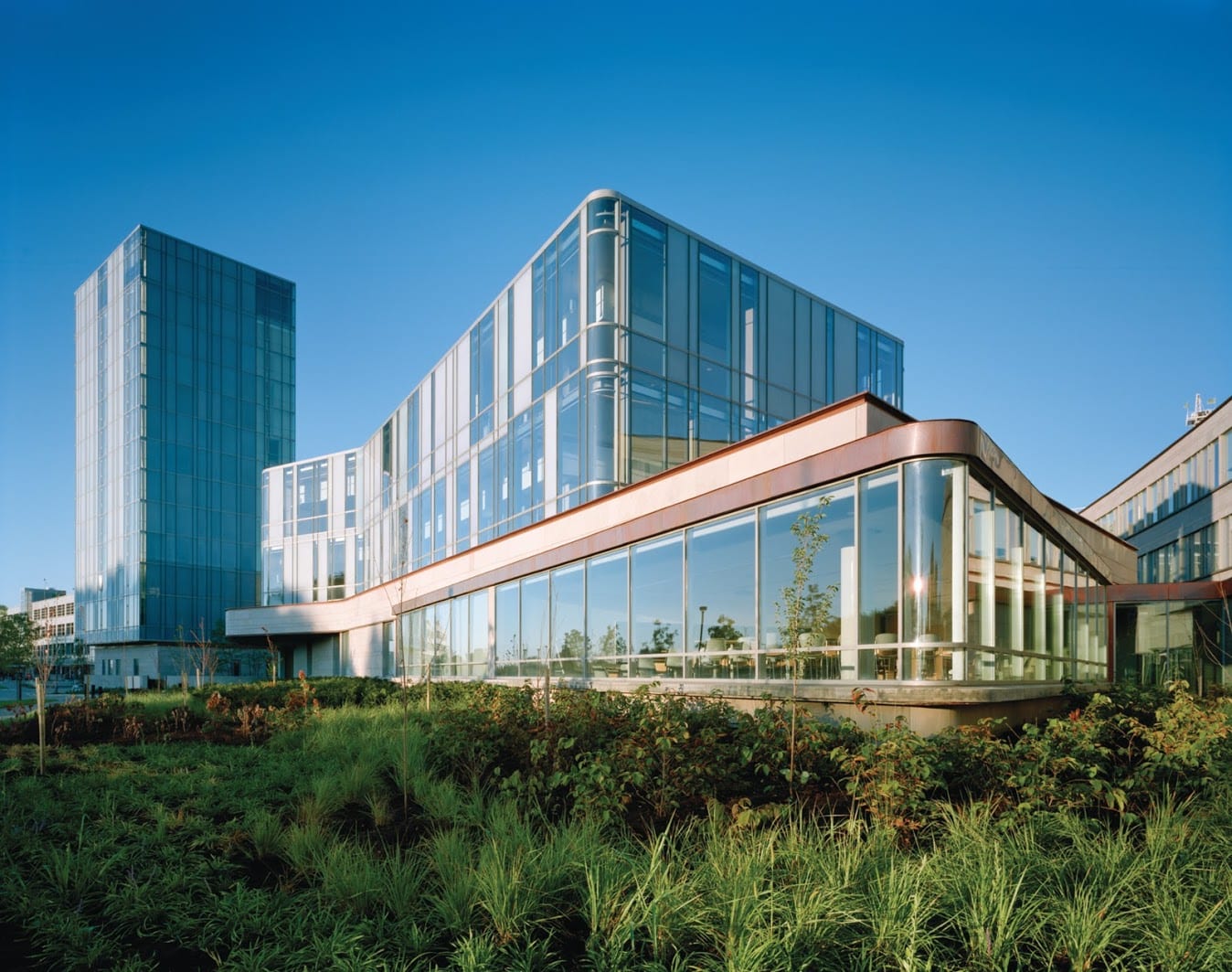Pick Your City: Should You Get an MBA in Toronto or Vancouver?

Should you get an MBA in Toronto or Vancouver? What are the benefits of each city, how much will each location cost, what can you expect in terms of job opportunities, and what MBA programs are available?
At a glance, the two Canadian cities are very comparable, offering similar big-city experiences for residents. However, when you dig a little deeper, some major differences arise. In our “Pick Your City” series, we break down two similar locations to help you choose your best MBA program.
Toronto or Vancouver: Cost of Living
Before we start digging down into the nitty-gritty details comparing Toronto to Vancouver, let’s take a look at the facts. When it comes to how much it costs to live in each city, which city comes out on top? According to Numbeo, it’s actually more affordable to live in Vancouver, if you can believe it.
To maintain the same standard of living in both cities, you would need $6,293 CAD in Vancouver compared to $6,900 CAD in Toronto (assuming you rent in both locations). This breaks down to:
- Consumer prices in Vancouver are 8.72 percent lower
- Rent prices in Vancouver are .18 percent higher
- Restaurant prices in Vancouver are 11.46 percent lower
- Groceries in Vancouver are 13.75 percent cheaper
Overall, if you live in Vancouver, your purchasing power is 13.41 percent higher than in Toronto.
However, a major cost of living difference between each city comes down to where specific residents live. According to data from Expatistan, a furnished apartment in the most expensive part of Vancouver can cost about 11 percent more than living in the most expensive part of Toronto.
Toronto or Vancouver: Culture

Vancouver is consistently named as one of the top five worldwide cities for livability and quality of life, and the Economist Intelligence Unit acknowledged it as the first city ranked among the top-ten of the world’s most well-living cities for five consecutive years.
But what about when you start looking at living in Toronto or Vancouver outside of how much it costs? Lifestyle, activities, and culture can be a significant differentiator for where you want to live and earn your MBA. In many ways the cities are very similar; they offer all the same essential conveniences that you would expect from any big city.
Toronto Lifestyle
Toronto is the largest city in Canada. It’s known for being the financial and cultural hub of the entire country. It has a global city vibe that’s always bustling. Think of it as the New York City of Canada. If you love the city lifestyle, you may love Toronto.
When you are downtown in Toronto, you’ll be surrounded by hundreds and thousands of people all going about their business at the same time. And speaking of business, Toronto’s salaries are the highest in the country, and there are many incredible job opportunities (we’ll talk about this more a little later).
One major selling point for Toronto is its extreme diversity. More than 50 percent of residents belong to a visible minority population group. Residents of Toronto come from all different backgrounds, cultures, and locations. It’s a vibrant community for anyone from anywhere, which can translate to some incredible food, activities, and shops
Vancouver Lifestyle
Vancouver is also a big city, but it’s a lot more laid back. People say the city has a more relaxed pace, which can mean it’s a little boring if you’re looking for nightlife. However, if you’re looking for better work/life balance, Vancouver takes the lead.
However, that also means that business can be a little slower in Vancouver. Don’t expect quite as high salaries or as many open jobs. Though there are still many companies thriving in the area, which we’ll talk about more later.
One of Vancouver’s main features is its landscape. It’s surrounded by mountains, which makes it not only one of the most beautiful cities in Canada but one of the best for outdoor enthusiasts. There are many opportunities for skiing, kayaking, hiking, and more all within 30-minutes of downtown.
We also have to mention Vancouver’s incredible public transportation. It has the world’s longest fully automatic driverless train system in the world: Skytrain. It’s known for its efficiency and regularity. There’s also the Seabus, which ferries people to North Vancouver in 20 minutes.
Toronto or Vancouver: Job Opportunities

Toronto is one of the most multicultural and multiracial cities in the world with established ethnic neighborhoods such as Chinatown, Corso Italia, Little India, Greektown, Koreatown, Little Jamaica, Little Portugal, and Roncesvalles.
When it comes to job opportunities and the economy, Toronto stands out. The city is home to the Toronto Stock Exchange as well as being the headquarters of Canada’s five largest banks (known as the Big Five). Also, many large Canadian and multinational corporations call the city home. You’ll find jobs in almost every industry from technology to design, financial services, life sciences, education, arts, fashion, business services, tourism, and more.
Some of Toronto’s top employers include:
- Accenture
- Bayer
- AIG Insurance Company of Canada
- CIBC
- Ford Motor Company
- Proctor & Gamble
- Oracle
- IMAX Corporation
- Salesforce
- Royal Bank of Canada
- Xerox
As for Vancouver, it’s consistently named one of the top five worldwide cities for livability and quality of life. And since the Port of Metro Vancouver is the third-largest port by tonnage in the Americas (beating out NYC), it offers some uniquely thriving industries, doing more than $172 CAD billion in trade with over 160 different trading economies annually. Vancouver is also a center of software development, biotechnology, aerospace, video game development, animation studios, and television production. There’s also a strong focus on lifestyle and health culture, being the hub for Lululemon, Arc’teryx, Nature’s Path Foods, and more.
Some of Vancouver’s top employers include:
- Best Buy Canada
- BC Assessment
- BC Hydro
- HSBC Bank Canada
- Fraser Health Authority
- Nintendo
- Oppenheimer Group
- SPK Consulting
- Arrow Transportation Systems
Toronto or Vancouver: MBA Programs
Both Vancouver and Toronto are home to some well-known business schools with quality MBA programs. We’ll take a quick look at the top three programs in each location.
Toronto MBA Programs
- University of Toronto Rotman School of Management: Rotman offers both a part-time and full-time MBA program with sixteen possible majors, including Brand Management; Business Design; Sustainability and Health Sector Management.
- Wilfrid Laurier University’s Lazaridis School of Business and Economics: The Lazaridis School offers both a part-time and full-time MBA program along with multiple dual-degree options with specializations in everything from Operations Management to Innovation and Entrepreneurship.
- York University’s Schulich School of Business: The Schulich School offers both a flexible part-time MBA as well as a full-time MBA. Students can specialize in more than twenty different areas, including Arts, Media & Entertainment Management; Organizational Studies; Business & Sustainability and Social Sector Management.
Vancouver MBA Programs
- University of British Columbia Sauder School of Business: The Sauder School offers both a full-time and part-time MBA program with three pre-determined career tracks in Product & Service Management, Innovation & Entrepreneurship, and Finance.
- Simon Fraser University Beedie School of Business: The Beedie School has both a full-time MBA and a part-time MBA. The school stands out for enrolling just 55 students each year and taking only 12 months to graduate.
- Vancouver Island University: The Vancouver Island University offers a 14 to 16-month MBA program featuring 12 core courses in subjects such as Managing and Strategy; Foundations of Marketing; Foundations of Economics; and Basics of Accounting and Quantitative Methods.
U.S. Tops Highest MBA Salary Rankings

Return on investment post-MBA is one of the main considerations for candidates. After all, who would want to spend tens of thousands of dollars on an education without a solid salary afterward? That’s why it’s so important to look at how the best MBA programs can affect a graduate’s salary.
So, where should you go to school for your MBA if you want the best salary after graduating? We’re taking a look at the highest earning MBA programs per country to dig down into what you can earn as an MBA all over the world.
Rotman Research Promotes Personal Data Advocacy, and More – Toronto News

Canadian business schools have made valuable contributions this week. From providing life-saving researching, to creating ethical programs that will produce ethical leaders, Canada’s top schools are certainly doing their part to better their communities. We’ve laid out some of the high points below.
Western Researchers Study Overdose Antidote in High Schools – The London Free Press
Researchers from Western University Canada’s Ivey Business School and Schulich School of Medicine and Dentistry recently joined forces to determine whether supplying high schools with an antidote to opioid overdose would be a cost-effective way to combat Canada’s rising problems. Naloxone prevents the physical effects of consuming toxic amounts of opioids, and having the drug in supply in schools could save lives. However, this solution to rising opioid overdoses would cost money.
The researchers evaluate the cost-effectiveness of implementing a naloxone program in schools, wherein the drug is supplied and the staff is trained in its use. Study authors Greg Zaric and Lauren Cipriano put together a spreadsheet that would allow schools to determine the cost and benefit of starting a program in their specific area.
“We think every school board should be evaluating a program like this using a tool of procedure like this to see if they really are getting the best use of their available funds…there are lots of things that we can do in schools to improve the health and safety of students,” Zaric says, “We want to make sure the portfolio of medical and health interventions that we provide to students is getting us the best possible health impact for the amount of money we’re investing.”
You can read more about the cost of Naloxone programs here.
It’s Time to Pay Consumers For Their Data – The Globe and Mail
Richard Nesbitt and Brian O’Donnell, of the Global Risk Institute in Financial Services, wrote an article for The Globe and Mail that advocates giving consumers more control over how data is used. In addition to his role as CEO of the Global Risk Institute in Financial Services, Nesbitt is an adjunct professor at the University of Toronto’s Rotman School of Management.
Their article specifically addresses the need for “personal data advocacy.” The co-authors believe an institution should work with people, “to gather, protect, and monetize their personal data.” According to the article, social media sites have made trillions of dollars off of user data, leaving users with none of the benefits and all of the security and privacy risks.
Brian O’Donnell and Richard Nesbitt write:
“With ownership of their data, individuals could then decide how they want their data used. For example, do they want to lock it down, sell it or donate it to a charity or research organization?”
Read more about personal data advocacy here.
What is a Sustainable MBA? – Study International News
York University’s Schulich School of Business’s sustainable MBA was ranked the third best program by Study International News. A sustainable MBA is one that puts environmental and social considerations before the bottom line. Critics claim that traditional MBA’s breed leaders who put their own profit before the welfare of their community. This view is so pervasive, that the ‘evil corporation’ has become a pop-culture trope.

The Schulich MBA is lauded as one of the best in the world when it comes to sustainability education, according to Study International News.
School’s like Schulich, however, are cultivating programs that could change this perspective. Warwick University and the University of Exeter Business School nabbed the first and second rankings. It is clear that Canada is a leader in sustainable MBA’s, with 11 Canadian schools topping the list of the Better World MBA Rankings.
Julia Christensen Hughes, University of Guelph says:
“MBA programs—the most dominant graduate degree in the world—must endeavor to develop the leaders so desperately needed. And this is where Canada can truly lead.”
You can read more about the Schulich sustainable MBAs here.
Rotman Prof Talks Gender Equality and More – Toronto News

Toronto’s finest business schools have been doing their part to improve the landscapes of work environments and executive education. We’ve laid out this week’s highlights below.
Companies Find One-Stop Shopping for Executive Education – The Globe and Mail
Western University Canada’s Ivey Business School recently launched The Ivey Academy, a full-service learning and development center for executive education. This is good news for companies like Bruce Power LP, as they have been partnering with Ivey for years on leadership development education. Now, Ivey can also offer them services like corporate retreats and talent assessments.
“It would be nice to be able to [undertake executive education] with someone who knows us really well and knows a lot of our leaders really well and knows what our issues are,” says Cathy Sprague, Bruce Power LP Executive VP of Human Resources.
“We’re not the experts at everything,” Mark Vandenbosch, Dean of Ivey Business School, says in a recent interview in The Globe and Mail. “So … let’s figure out who are the people that we believe are up to the standards that we preach…so that when you put the parts together it’s more of a journey than a set of interactions.”
You can learn more about The Ivey Academy here.
Gender Equality In the Workplace: How Men Can Move the Needle – The Telegraph
Sarah Kaplan, Director of the Institute for Gender and the Economy and Strategic Management Professor at University of Toronto’s Rotman School of Management, interviewed two executives about the role of male executives in increasing workplace diversity (specifically, gender).
Kaplan spoke to Richard Nesbitt, President and CEO of Global Risk in Financial Services and adjunct professor at Rotman, and Kevin Lobo, Chairman and CEO of Stryker Corporation, and Director on the board of Parker Hannifin. The executives agreed that creating resources for women and determining their needs in the workplace is essential to creating an inviting environment.
“It’s important to have an official women’s network with an executive sponsor,” Lobo says. “I would advise people to put a thoughtful structure behind the initiative, give it a budget and empower people to run it effectively.”
Lobo emphasized that this course of action was a game-changer for Stryker. Stryker now has a mentorship system, so that women in the company have someone to talk to about their career path.

Sarah Kaplan, Rotman School of Management professor and Director of the Institute for Gender and the Economy.
“In academia,” Kaplan writes, “there’s a concept called ‘belonging uncertainty’: If you’re in an environment where you’re not sure that you belong—for example, if you’re a woman working in capital markets—you’re constantly looking for signals that you do belong.”
You can read more from Kaplan’s interviews on workplace gender equality here.
20-Years-Old, 20 Percent Down On A House. It’s Possible – The Globe and Mail
The Globe and Mail recently dug into the housing market, citing the story of a 20-year-old man who saved enough money to buy himself a house; a modern rarity. The man is an exception in the Canadian market, where the average price of a home is $475,000 CAD, and obtaining a mortgage is increasingly difficult. Moshe Milevsky, Finance Professor at York University’s Schulich School of Business, weighed in on Gen Y’s housing issues.
“People have to twist themselves into a pretzel to get themselves into houses,” Milevsky says. The article recommends utilizing options like the Home Buyers’ Plan, which lets buyers withdraw a certain amount from their registered retirement savings plan (RRSP) with 15 years to repay it.
Check out the rest of the article here.
New Yorker Cites Rotman Professor in Nobel Story – Toronto News

This week, representatives from Canada’s best business schools have utilized their skills and knowledge to make valuable contributions to the greater community. We’ve laid out the highlights below.
The Nobel Committee Honors The Economics of Market Failure – The New Yorker
A recent New Yorker article about the 2018 Nobel Prize in economics winners cites the blog of University of Toronto’s Rotman School of Management Professor Joshua Gans. Though the Nobel winners, Bill Nordhaus and Paul Romer, have not collaborated with one another, both have independently highlighted possible flaws and oversights of market economies. The article utilized Gans’s insight that the work of both winners provided a framework for economists to analyze and account for market failures.
According to thearticle, “In an idealized competitive market, prices equate the costs of producing goods with the benefits derived by consumers, and this equalizing mechanism insures that markets allocate resources and goods more efficiently than government diktat or other methods.”
Nordhaus’s research on fossil fuels and Romer’s research on goods that demonstrate advances in human knowledge suggest gaps in this narrative. Nordhaus’s work addressed that the cost of fossil fuels does not account for the damage incurred by their use, and consequent cost for future generations. This negative cost, importantly, is not accounted for in market transactions. Romer’s work explored positive spillover that is not accounted for in market transactions, such as advances in technology.
On news of Romer and Nordhaus’ awards, the Nobel Committee says:
“Both Romer and Nordhaus emphasize that the market economy, while a powerful engine of human development, has important imperfections and their contributions have thus offered insights into how government policy could potentially enhance our long-run welfare.”
You can read more about the Nobel Prize winners here.
Ryerson University Names Janice Fukakusa As Its New Chancellor – Newswire
Ryerson University has announced that Janice Fukakusa will take over as its Chancellor. Fukakusa, who received her MBA from York University’s Schulich School of Business, held senior roles at Royal Bank of Canada, including Chief Administrative Officer and Chief Financial Officer. She is currently on the board of not-for-profits like General Growth Properties, The Princess Margaret Cancer Foundation, and Cineplex. Until recently, Fukakusa was Chair of the Board of Governors for Ryerson. Fukakusa will be Ryerson’s first female Chancellor.
In her 31-year career, Fukakusa has received a variety of accolades celebrating her achievements. American Banker named her one of “The 25 Most Powerful Women In Banking” in 2016. She was also inducted into Canada’s Most Powerful Women Hall of Fame.
On news of her new role, Fukakusa says;
“I am honoured to be Ryerson’s new Chancellor, and look forward to driving the positive educational and societal changes for which the university has become known. We are leading the charge on so many important issues, and I am eager to work with students, faculty and staff in this new capacity to further advance the impressive progress that has been made to date.”
You can find out more about Fukakusa and her new role here.
Competition for Great Talent Has Become ‘Intense’ Axonify CEO Says – The Globe and Mail
The Globe and Mail profiled Carol Leaman, Chief Executive Officer of Axonify Inc. to highlight struggles facing tech employers. Leaman, whose company provides training modules for employees of corporations like Walmart and Bloomingdales, expressed that it has been increasingly difficult to woo qualified tech candidates. Amazon, Uber, and other global companies have been infiltrating the Ontario market, employing massive numbers of developers and IT personnel. Moreover, companies like Terminal have been helping U.S. firms hire Canadian developers.
/arc-anglerfish-tgam-prod-tgam.s3.amazonaws.com/public/YG6KDN4TFRGCBFLOFIYVYVVGOE.JPG)
Carol Leaman, president and CEO of Axonify / Photo via The Globe and Mail
According to Wilfrid Laurier University Professor of Organizational Human Behavior, Chet Robie, Leaman needs to offer stellar benefits and compensation in order to thrive.
“I would start working on making their compensation more competitive—and by doing that you don’t always have to increase base salary,” Robie says, alluding to benefits like work flexibility and upward mobility.
“What really resonates with this group of people doesn’t have to break the bank.”
Read more about competition in Canada’s tech market here.
The 5 Highest Paid Toronto Internships for MBAs

Toronto is Canada’s largest city and home to leading companies in both business and finance. There’s a particularly large concentration of banks as well as media companies, publishing firms, telecommunication, IT, and film production companies. There’s a little bit of everything in the city including top MBA programs such as McMaster University’s DeGroote School of Business, Ryerson University’s Ted Rogers School of Management, and York University’s Schulich School of Business.
But where should you look for paid Toronto internships? First, the industry you choose matters. According to the 2018 employment report from the University of Toronto’s Rotman School of Management, you should stick with three industries if you want to earn the most money: law/legal services ($18,000 per month), consulting ($6,332 per month), and financial ($5,623 per month).
Specifically, you might want to check out these five high paying internships in the Toronto metro.
The 5 Highest Paid Toronto Internships for MBAs

Sun Life Financial is a Canadian financial services company headquartered in Toronto. It is as one of the largest life insurance companies in the world, spanning back to 1865. The company pulls in around $28.5 billion in revenue each year, with over 30,000 employees worldwide.
MBA students looking for an MBA internship have multiple options. In particular, there are positions in finance, HR, and real estate. There are also co-op options in the Business Leaders Internship Program. This program gives students ten weeks to work in a number of functional areas to learn where they can be successful.
According to Glassdoor, interns can expect to earn:
- Salary: $3,166 – $4,333 Per Month

Ontario Power Generation, owned by the government of Ontario, is responsible for half of the electricity generation in the Province. The company uses nuclear, hydroelectric, wind, gas, and biomass electricity. The energy diversity helps pull in about $4.73 billion in revenue each year, employing 10,840 people.
For MBA students, the company offers both winter and summer internship opportunities. Interns analyze new business opportunities, pitch marketing, complete customer research, and perform business model development.
Glassdoor reveals that an average intern earns:
- Salary: $4,160 – $5,440 Per Month

BMO Financial Group is a Canadian multinational banking and financial services company. It’s one of the big five banks of Canada and is the fourth-largest by market capitalization and assets. In fact, it’s one of the ten largest banks in all of North America with $21.7 billion in revenue each year and 45,200 employees.
YOU MAY ALSO LIKE: What MBAs Should Know About BMO Financial
An MBA internship at BMO can cover a variety of job functions from financial modeling analyst to program management, investment banking, and capital markets. Through the program, students gain hands-on experience working with a team of seasoned professionals.
According to Glassdoor, an MBA intern can expect to earn:
- Salary: $3,000 – $4,160 Per Month

The Royal Bank of Canada (RBC) is a multinational financial services company and the largest bank in the country by market capitalization. It services over 16 million clients worldwide with personal banking services and products. 2017 estimates were around $40.6 billion in annual revenue with 79,000 employees.
RBC is home to a robust internship program with opportunities to work as a data scientist, business analyst, capital markets advisor, global equities, and more. Each internship program provides MBA students with the chance to work as a strategic advisor across a variety of industries from energy to health care, technology, real estate, media, and more.
As an intern, you can expect to earn a good salary according to Glassdoor:
- Salary: $4,833 – $5,166 Per Month

TD Securities is another Canadian investment bank and financial services company, offering advisory and capital market services. It is particularly known for providing expertise in corporate and investment banking, capital markets, and global transaction services. In 2016, TD Securities earned $3.03 billion in revenue with just 3,800 employees.
As far as internships for MBA students, there are many interesting 10-week options with business tracks in corporate and specialty banking as well as retail and product. These internships provide practical, hands-on experience, and can lead to participation in the 12-month MBA Associate Track Program post-graduation.
Based on intern salaries submitted to Glassdoor, MBA students can expect to earn:
- Salary: $3,250 – $4,166 Per Month
